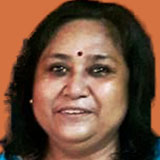Tarun Bose: One of the Finest Goalkeepers of Bengal Forgotten by Time – GetBengal story
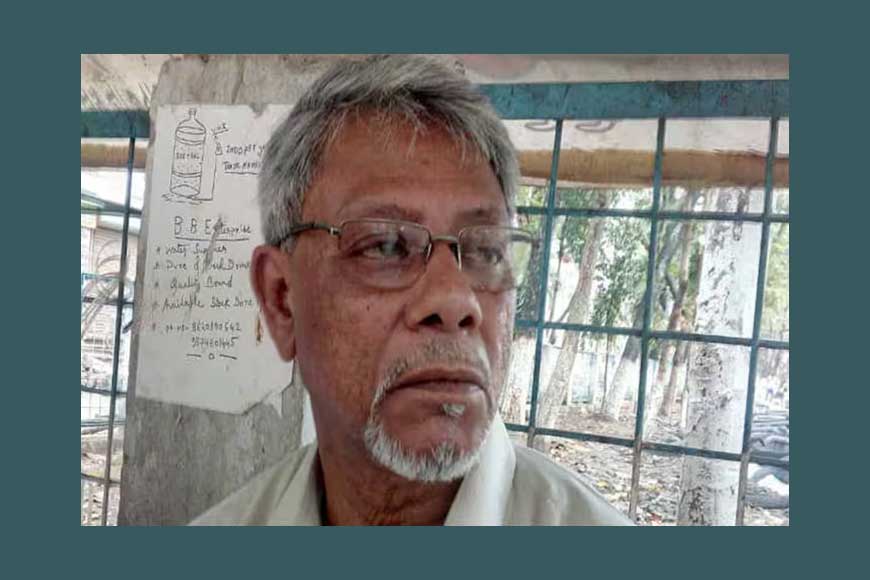
Former Polish football player Artur Boruc, who played as a goalkeeper, once said, “Being a goalkeeper is like being the guy in the military who makes the bombs—one mistake and everyone gets blown up.”
Attackers, midfielders, and defenders can all get away with making the occasional mistake, but if a keeper drops the ball in front of an attacker, scuffs a goal-kick, or lets a shot go through his legs...well, you know what happens next! Goalkeepers often face heightened scrutiny and blame when a team loses, as their mistakes can directly lead to goals. The professional career of Tarun Bose, one of the finest Indian goalkeepers of all time, was cut short abruptly when his club, Mohun Bagan FC, lost a league match against its arch-nemesis, East Bengal FC, in 1973. Although Bose demonstrated unwavering concentration and mental strength throughout the game, especially in high-pressure moments, the team lost the match by a goal. The scoreboard at the end of the game read: East Bengal FC 2, Mohun Bagan FC 1. As soon as the referee blew his whistle, the atmosphere in the gallery changed. East Bengal FC club fans were jubilant and taunted the dejected Mohun Bagan fans, which enraged them. Mohun Bagan club officials were desperate to save their faces, and they blamed Bose squarely for the defeat. Some of them even accused him of double crossing and accepting a bribe from the rival club to ensure the team’s defeat in the match.
Bose was devastated. He had played a brilliant match, giving his best to save a goal. When an East Bengal attack was building, he came forward from the net and stood like a pillar against some of the deadliest attackers, all ready to shoot the ball. Subhash Bhowmick, the powerful East Bengal FC forward with excellent goal-scoring abilities, was right in front of him, while right winger Swapan Sengupta was a little behind. Further to the right was Md. Akbar, referred to as "Badsha" of the Calcutta Football League, who hovered nearby like a hawk. Samaresh Chowdhury, the ‘torpedo’ midfielder of East Bengal, kicked the ball. Both Bose and Bhowmick jumped high to get control of the ball; however, the ball eluded the reach of the duo and floated towards Akbar. This was a crucial moment. If Akbar had received the ball, he would have scored an easy goal, but with Bose guarding the net, that was not to be. A proficient goalie with the right combination of technical abilities, mental resilience, and tactical understanding, Bose instinctively realised he would not be able to save the goal using his body, so he jerked and, with an extra pull, twisted his body backwards and picked the ball deftly with his hands. The moment was etched in the annals of football history, but due to the loss, he was singled out as the villain.
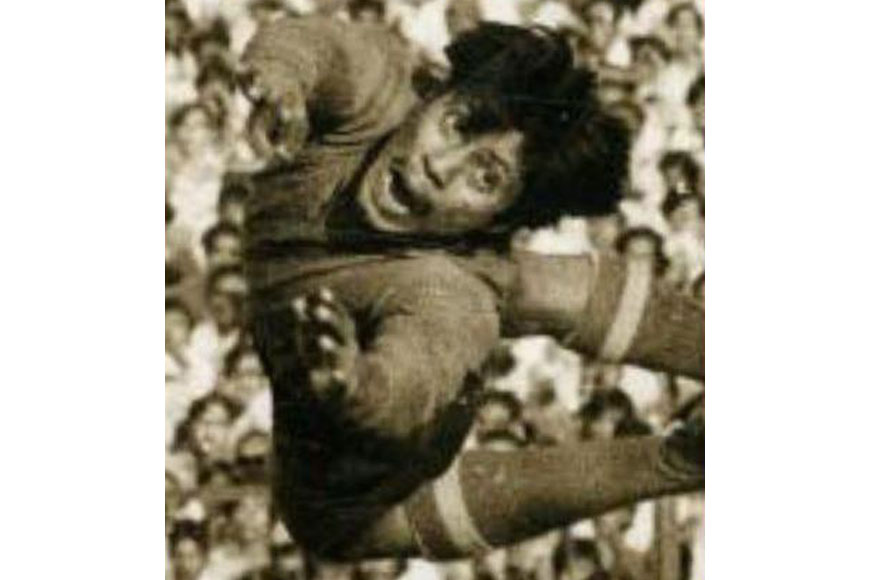
Goalkeeping is one of the toughest jobs on the football field. The goalkeeper is the team's last line of defence, and the slightest error could cost the team the match. The best goalkeepers in the world embrace pressure. Bose’s temperament was ideal for the position he played. However, he had to bear the insults that were hurled at him after the match.
Mohun Bagan officials began to cold-shoulder Bose. Until that match, Bose always donned a cap while playing, but that day, after the match was over, senior East Bengal official Jeevan Chakraborty taunted him ruthlessly. No one came to Bose’s defence, and he suffered in silence. Following the incident, he never ever wore a cap in a match again. Was this what Bose deserved after rejecting East Bengal FC’s lucrative offers several times? The incident left a mark on Bose; his passion for club football waned, and eventually he hung up his boots despite being in the prime of his football career. Veteran footballers and fans regret how Bose withdrew himself from the game when he realised he was being made a scapegoat in the petty club politics. He never complained but left the field with dignity, bidding farewell to club football.
Bengalis are passionate about football. ‘Sob khelar sera Bangalir tumi football,’ (football, you are Bengalis’ supreme sport). Cutting across geographical borders, Manna De’s cult song from ‘Dhanni Meye’ pays rich tribute to Bengalis’ mass hysteria for football. Football was introduced in colonial Bengal, which later became a site for identity politics and cultural assertion, resistance, and subversion, as well as for the demand for political freedom.
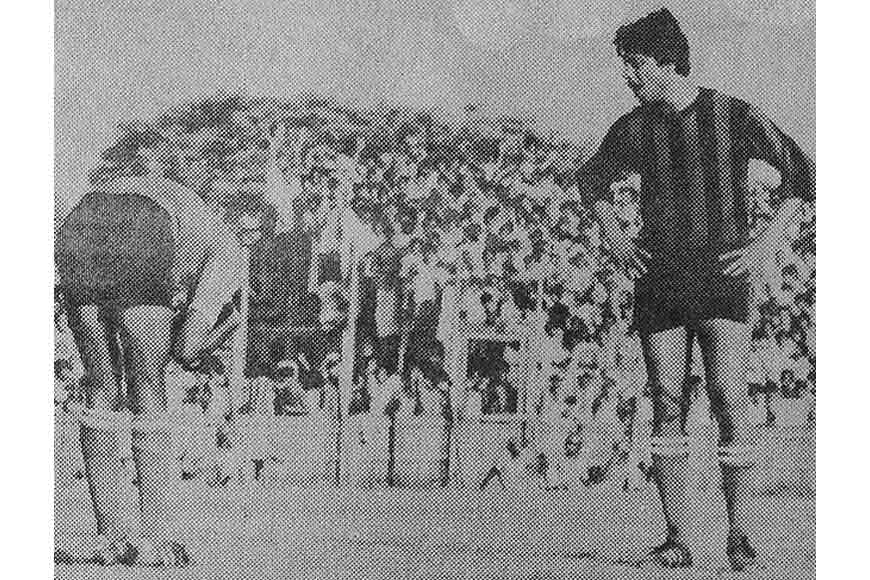
Times have changed, but the passion, enthusiasm, and rivalry among football fans in Bengal continue to rule the roost. After Independence, Kolkata became and continues to be a hotbed of club football contestation.
As far as local sporting rivalries go, few on this planet can compare to the competitiveness prevalent between Mohun Bagan FC and East Bengal FC, commonly known as the Kolkata Derby. The two giant clubs have been at each other’s throats since East Bengal’s inception a century ago on August 1, 1920, and their rivalry has scripted the most glorious chapter in the history of Indian football. The rival clubs faced each other for the first time on 8 August 1921 when they competed for the coveted Cooch Behar Cup.
Also read : Maradona of Kolkata Maidan
The two teams represent two communities of the state of Bengal, who simply cannot stand losing to each other. Bengali refugees who came to West Bengal from former East Pakistan (nay, Bangladesh) established East Bengal FC. The native Bengalis of West Bengal, on the other hand, formed Mohun Bagan FC. The cultural differences between the supporters of both sides have turned this derby into the second oldest football rivalry in the world. The two clubs are ‘equal and opposite’, as an East Bengal fan termed it.
The timeline between the 1960s and 1980s was a golden period for club football in Kolkata. One of the sport’s most brilliant goalkeepers of all time, Tarun Bose played for both Mohun Bagan FC and East Bengal FC during this golden period. Regarded and revered as one of the best keepers the country has ever produced, his football career started in 1962 at Chandra Memorial in the 4th division. A ‘division’ is the tier or difficulty level in which league games are carried out. Therefore, instead of saying top tier, second tier, third tier, etc., one refers to these distinctions as first division, second division, third division, etc. In 1964, he joined second division club Young, and then finally, in 1967, he joined 1st division club Bali Pratibha. In between, he took a two-year hiatus from professional football.
From the time he was in school, Bose was a keen footballer and participated in local club matches. He was a regular at Players Corner Club in Bhawanipore until a senior club official, Kashinath Ghosh, noticed his skills and recommended him to Chandra Memorial Club, where he was inducted right away. In 1969, Bose joined Rajasthan Club, and finally in 1970, he got a firm footing when he joined Kidderpore Sporting Club.
The year 1971 was a turning point in Bose’s life. Both Mohun Bagan and East Bengal were desperate to sign Bose for their respective clubs. East Bengal FC's offer was very lucrative. Kanai Sarkar was the regular goalkeeper for the East Bengal FC team, but his form was in decline, whereas goalie Balai Dey, nicknamed the 'flying bird', was in great form and was an indispensable part of the Mohun Bagan team. Subir Ghosh, an official of the East Bengal Club who was negotiating with Bose casually mentioned that if he joined Mohun Bagan, he would not get a chance to be a regular member of the football team since Balai Dey was in top form. Bose took this as a challenge, rejected East Bengal’s rewarding offer, and joined Mohun Bagan.
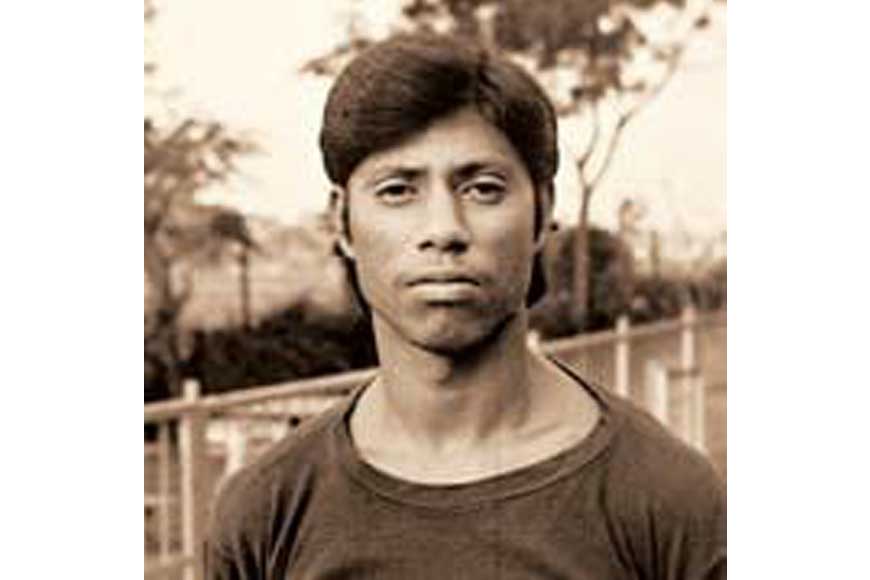
Bose practiced diligently and worked hard to hone his skills in the nets. Soon, an opportunity came knocking at his door. During one particular match against archrival East Bengal FC, Balai Dey's goalkeeping did not live up to expectations. Mohun Bagan conceded a goal, and Bose entered the arena to play the first big match of his life, and he played brilliantly. This was in 1971, and he was inducted into the team and became Mohun Bagan's regular goalkeeper. He reached his peak form in 1972–1973, as he mesmerised his audience with his amazing skills as a goalkeeper and became an asset in the eyes of Mohun Bagan officials and fans. In 1973, the team lost 1-2 in the league match against East Bengal, turning Bose into a villain overnight.
Chandramadhav Roy, the then-manager of Mohun Bagan FC, was very fond of Bose, and he insisted the latter stay back and continue to play for Bagan. Bose, somewhat reluctant, agreed and signed the contract to play for Bagan in 1974. However, one noticed a marked change in his attitude. That year, he let his friend Prashant Mitra take his place and play in most of the matches. This exposure helped Prashant Mitra get a foothold in Maidan. Finally, in 1975, Bose responded to Dr. Nirpen Das’s offer and joined East Bengal.
He was Bengal's number one goalkeeper in the Santosh Trophy for four consecutive years between 1972 and 1975. Meanwhile, in the Santosh Trophy final at Jalandhar in 1974, Bengal, playing with a relatively weak team, was defeated mercilessly by Punjab, 6-0. In 1971, he toured Russia as part of the Indian football team and was named the best goalkeeper there. In 1972, he went to Myanmar as a team member of the pre-Olympic Indian football team. In 1974, he was called to join the trial camp at Bangalore for the Asiad. However, he was wrongfully dropped despite his outstanding performance in the camp. After joining East Bengal, Bose became a key member of the team, and the year was a memorable one for East Bengal FC as well for consistently winning all major matches.
The football season in 1976 started with a bang; however, things changed following the league match with Mohun Bagan when Md. Akbar scored a goal in the first 16 seconds. Despite impeccable goalkeeping for the rest of the match, some officials maliciously blamed Bose for not stopping the goal intentionally.
However, after this incident, Bose was dropped from the first XI team and he was replaced by Biswajit Das. From then on, controversies seemed to shadow Bose. During the football tournament in Bokaro, the club suspended four players, including Bose, on disciplinary grounds. He joined Mohammedan Sporting Club in 1977; however, he was dropped from the Bengal squad. The next year, Bose once again joined East Bengal club.
In 1980, he left East Bengal FC and went back to play for Kidderpore Sporting Club. In 1982, he joined Uwari Club before retiring from professional football and taking to coaching. He was the goalkeeper coach of the India U-16 side and also a Kolkata club—United Sports Club—in 2013, and his style of coaching impressed the club’s Dutch coach, Eelco Schattorie. The football aficionados of Maidan would remember Bose’s style, agility, and precision forever. Last year, on August 1, on the occasion of East Bengal FC’s 104th Foundation Day celebrations, Tarun Bose was conferred the Lifetime Achievement Award by the club for his contribution to football.






